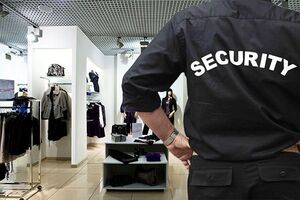Empowering Retail Security Guards to Handle Conflict Safely
Cuerpo
In the bustling environment of retail, conflicts can arise unexpectedly. Whether it's a disagreement between customers, a confrontational encounter with a suspected shoplifter, or a heated exchange with an unruly individual, retail security guards often find themselves at the forefront of managing these conflicts. Empowering security guards to handle such situations safely and effectively is paramount to maintaining a secure and welcoming environment for customers and staff alike.
Understanding Conflict Resolution:
Conflict resolution is a multifaceted skill that involves de-escalating tense situations, resolving disputes peacefully, and preventing the escalation of violence or aggression. Retail security guards must be equipped with the knowledge, training, and tools necessary to navigate conflicts calmly and confidently.
Training and Education:
Comprehensive training programs are essential for preparing retail security guards to handle conflict safely. These programs should cover a range of topics, including:
- Conflict de-escalation techniques: Security guards should be trained in verbal communication skills, active listening, and non-confrontational body language to defuse tense situations before they escalate.
- Understanding human behavior: Guards should learn to recognize signs of agitation, distress, or aggression in individuals and respond appropriately based on these cues.
- Legal and ethical considerations: Guards must understand the legal framework surrounding the use of force, self-defense, and citizen's arrest in retail settings to ensure compliance with the law and protect the rights of all parties involved.
- Cultural competency: Guards should receive training on cultural sensitivity and diversity awareness to effectively communicate with customers and resolve conflicts in a culturally competent manner.
- Role-playing scenarios: Practical exercises and role-playing scenarios allow security guards to practice their conflict resolution skills in simulated environments, helping them gain confidence and experience in handling real-life situations.
Effective Communication:
Clear and effective communication is essential for resolving conflicts peacefully. Retail security guards should be trained to:
- Remain calm and composed: Maintaining a calm demeanor can help de-escalate tense situations and reassure individuals involved in a conflict.
- Use empathetic language: Demonstrating empathy and understanding can help defuse emotions and establish rapport with individuals in distress.
- Set clear boundaries: Communicating clear and firm boundaries can help prevent the escalation of conflict and establish expectations for acceptable behavior.
- Seek assistance when needed: Security guards should know when to involve additional support, such as law enforcement or store management, to help resolve conflicts safely and effectively.
De-escalation Techniques:
When faced with a conflict, security guards can employ a variety of de-escalation techniques to defuse tensions and prevent violence. These techniques may include:
- Active listening: Security guards should listen attentively to the concerns and grievances of individuals involved in a conflict, demonstrating empathy and understanding.
- Remaining neutral: Guards should refrain from taking sides or making judgments, maintaining a neutral stance to facilitate a fair and impartial resolution.
- Offering options: Providing individuals with choices and alternative solutions can empower them to resolve the conflict cooperatively and peacefully.
- Redirecting attention: Security guards can redirect the focus of individuals away from the source of conflict by introducing distractions or changing the topic of conversation.
- Appealing to reason: Guards can use logical reasoning and persuasion to encourage individuals to reconsider their actions and behavior, highlighting the potential consequences of their actions.
Physical Intervention as a Last Resort:
While the goal of conflict resolution is to resolve conflicts peacefully without resorting to physical intervention, there may be situations where physical intervention is necessary to protect individuals from harm or prevent the escalation of violence. In such cases, security guards should use the least amount of force necessary to achieve their objectives and prioritize the safety of all parties involved.
Physical intervention techniques should be taught and practiced in a controlled environment to ensure guards are proficient in their execution and minimize the risk of injury to themselves and others. Guards should be trained to use restraint and control holds judiciously, avoiding techniques that may cause unnecessary harm or injury.
Post-Conflict Support and Debriefing:
After managing a conflict, it's essential to provide security guards with support and debriefing to process their experiences and emotions effectively. Debriefing sessions allow guards to reflect on the incident, identify lessons learned, and discuss strategies for improvement.
Additionally, ongoing training and professional development opportunities help security guards refine their conflict resolution skills and stay updated on best practices and emerging trends in the field. By investing in the continued education and development of security guards, retailers can ensure they remain prepared and equipped to handle conflicts safely and effectively in the ever-evolving landscape of retail security.
Conclusion:
Empowering retail security guards Melbourne to handle conflict safely is essential for maintaining a secure and welcoming environment for customers and staff. Through comprehensive training, effective communication, and proactive risk management, security guards can navigate conflicts calmly and confidently, minimizing the potential for violence or disruption. By prioritizing the safety and well-being of all individuals involved, retailers can foster trust, loyalty, and positive relationships within their communities.






Comentarios